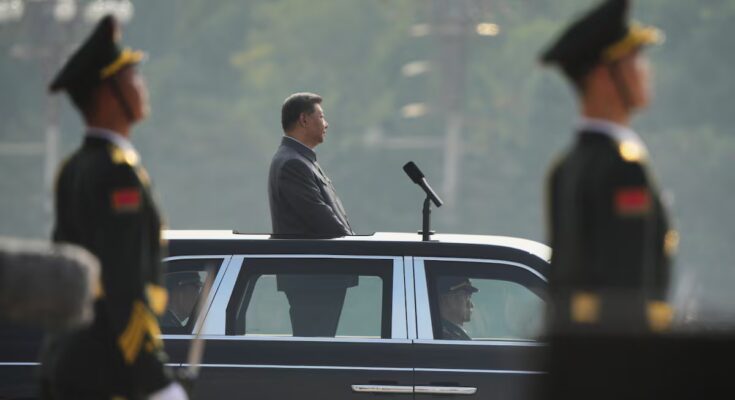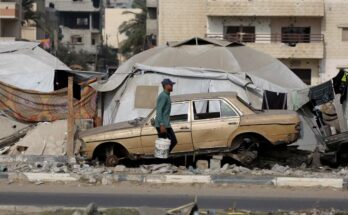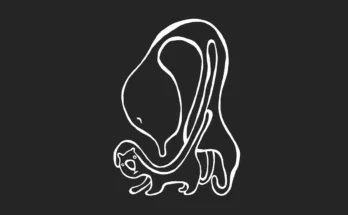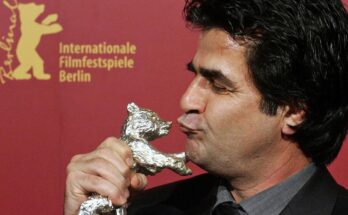On April 2, as Donald Trump hit the world with tariffs, senior People’s Liberation Army (PLA) officials, dressed in camouflage uniforms and armed with shovels, dug up the soil during a day of voluntary reforestation in Beijing. The main leaders of the powerful Central Military Commission (CMC, the highest authority over the armed forces) and other leaders of the Communist Party took part in the activity, which has been carried out since the 1980s. Since Xi Jinping came to power in 2012, members of the military leadership have never missed the meeting. This year was different. Those who follow the capricious twists and turns of Chinese politics immediately noticed the absence of General He Weidong, second in the ranks of the PLA.
He, who was then the second vice-president of the CMC and one of the 24 members of the Politburo, the main power body of the Communist Party, last appeared in public on March 11. Shortly before, he had given a speech on the need to deepen the fight against corruption in the ranks of the PLA. He was a man close to Xi, who had placed him at the top of the troops three years earlier. According to the Pentagon, he played a key role in planning live-fire maneuvers around Taiwan after Nancy Pelosi, then Speaker of the US House of Representatives, angered China by visiting Taipei in August 2022.
That much time out of focus was an indication that something was wrong. All we had to do was wait. On October 17, the Ministry of Defense announced the expulsion from the Party and the armed forces of He and eight other senior officials accused of corruption. He officially became the highest-ranking general ousted since the end of Mao Zedong’s term in 1976. And his coup, along with that of other officers, is just another in a cascade of dismissals that have intensified since 2023 with an ever-similar dynamic: First, commanders disappear from public life; After weeks or months, the government announces an investigation into corruption and expulsion from the Party amid allegations of serious conduct violations.
Something is moving in the EPL, although no one knows exactly what. Several analysts point to a move by Xi to end divergent factions within the military, tighten control over the promotion regime and ensure the future loyalty of the next generals.
Lin Ying-Yu, assistant professor at Tamkang University (Taiwan), specializing in the capabilities of the Chinese army, defends this thesis. The Chinese president wanted to “reset the system” by acting above all on the Political Work Department of the CMC, the body responsible for supervising the appointments of new generals. “Under the title of corruption he tried to destroy a group that (…) was not always willing to follow his orders,” he comments on the phone from Taiwan.
“The peculiar thing is that the nine disgraced soldiers were tigers – senior generals – and that the purge covered a wide range of military services,” writes Masaaki Yatsuzuka, a senior fellow at Japan’s National Institute for Defense Studies, in a recent article for the Australian Strategic Policy Institute. “This purge also raises questions about Xi’s control over the military,” he adds.
Many of these generals were linked to the elite 31st Army Group and were considered close to Xi, having worked with him since his days as local leader. They were promoted after careful observation by the president. “It is unclear whether his fall indicates a change in trust between Xi and military cadres, or an increasingly fierce power struggle within the military,” Yatsuzuka acknowledges.
The first steps in the crusade launched by Xi when he took over the reins of the country – in which millions of officials at all levels were investigated – have helped him project an image of discipline and clean up the Party’s reputation. In that initial phase, the heavyweights of the army fell, until then a bastion with extensive autonomy and complex networks forged during the eras of Jiang Zeming and Hu Jintao. However, since Xi was re-elected for a third term, the offensive has taken a new direction: now even the men he trusts are falling. According to a Bloomberg investigation, 14 of the 79 generals promoted under his leadership have disappeared or been under investigation in the past two years. To find parallels with the situation you have to go back to the 1970s.
The disciplinary offensive climbed the military hierarchy, from strategic units to the pinnacle of military power. The sequence of dismissals draws an ascending line starting from the abrupt dismissal, in the summer of 2023, of Li Yuchao and Xu Zhongbo, the two main commanders of the Rocket Force, in charge of controlling the nuclear arsenal of the Asian power. That episode was the beginning of an escalation that intensified in 2024 with the expulsion from the Party of former Defense Minister Li Shangfu (fired months earlier, just six months after his appointment) and his predecessor, Wei Fenghe.
The offensive continued into 2025 reaching an unprecedented level. He Weidong became the first sitting vice president to be ousted from the CMC leadership since the Cultural Revolution, and the third disgraced member since the current commission took office three years ago. The first was Li Shangfu himself, in October 2023; He was succeeded by Miao Hua, director of the Department of Political Work, in November 2024. Until then considered an ally of the Chinese president, Miao is another of the nine generals whose exit from the Party was made official last month.
Among the remaining layoffs there is everything. From He Hongjun, Miao’s deputy in the department responsible for ensuring Party loyalty in the army, to Wang Houbin, former commander of the Rocket Force. Meanwhile, Zhang Shengmin, head of the PLA’s disciplinary body, replaced the fired He in his position as CMC. But the movements left two vacancies at the top of the body and only two members in addition to the president and two vice presidents.
The strategic nature of the Rocket Force – created in 2015 and a key unit for the military modernization promoted by Xi – has fueled suspicions that part of the corruption network discovered may have originated within its ranks. The concentration of procurement contracts, the management of silos and shuttles, and the expansion of new bases would have provided opportunities for influence peddling and the diversion of funds.
Lin Ying-Yu of Tamkang University believes that with the new structure Xi also intends to ensure that the appointments of new generals come from like-minded people, so that when he retires, or abandons any of his formal positions of general secretary, president of the country or chairman of the CMC, the military establishment will remain under his control. Xi is ultimately the supreme leader of the armed forces in a country where Mao decades ago declared: “Political power arises from the barrel of a rifle.” In the words of Professor Lin: “If you control the PLA it means you can control Chinese politics.”
The PLA is above all the army of the Chinese Communist Party. Its soldiers swear loyalty to the Party, of which they are members, and receive orders from Xi, as commander in chief. “The Army takes up arms; it is the armed group responsible for carrying out the political tasks of the Party and constitutes a solid pillar to safeguard our red regime and defend national dignity”, reads an editorial in the PLA Diary in which he denounces the “cowardly” conduct of the nine “disloyal” generals fired in October. “The more it fights corruption, the stronger, purer and more effective the PLA will be in battle,” he continues.
General Zhang Youxia, the other vice president of the CMC, said in an article on Wednesday that the 15th Five-Year Plan (2026-2030) aims to strengthen the army’s capabilities. He also promised to take action against “false loyalties” and “two-faced men” and called for eliminating “poisonous influences and persistent problems”.
Zhang, China’s highest general and member of the Politburo, was the protagonist of the news on that April morning when the high command went out in uniform to reforest the outskirts of Beijing. “After more than an hour of hard work, they planted more than 800 trees,” Xinhua reported. The note made no mention of He’s disappearance.



